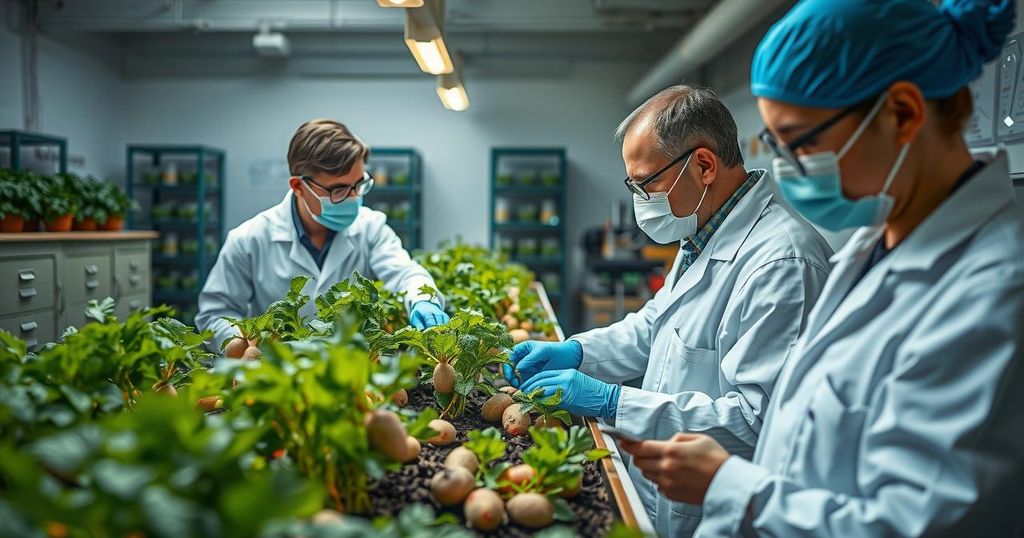Chinese scientists are prioritizing research to develop climate-resistant potato varieties in response to the significant impact of climate change on potato production. A recent study indicates that rising temperatures accelerate potato growth while drastically reducing yields. With forecasts predicting substantial temperature increases by 2100, immediate adaptation measures are essential for sustaining food supplies in China and globally.
In a research facility situated in northwest Beijing, molecular biologist Dr. Li Jieping and his team have made alarming discoveries regarding potato cultivation under anticipated future climate conditions. They harvested a batch of minuscule potatoes, highlighting the imminent threat posed by climate change. These potatoes, weighing merely 136 grams, represent a significant reduction compared to China’s typical potato sizes, which are often double the size of a baseball.
China, the largest global producer of potatoes, relies heavily on these crops for food security due to their significant yield potential. However, the increasing temperatures resulting from climate change present dire challenges. A recent study led by Dr. Li at the International Potato Center (CIP) indicated that elevated temperatures accelerated tuber growth but drastically diminished yields by more than 50%. Current climate forecasts predict an increase of up to 3.1 degrees Celsius by the year 2100, exacerbating the existing vulnerabilities in potato agriculture.
Farmers in China have voiced their concerns regarding extreme weather patterns affecting crop yields and are seeking potato varieties that are both resilient and capable of higher yields. The CIP’s research, which is a collaborative effort with the Chinese government, endeavors to develop heat-tolerant potato variants. In addition, agricultural practices will need to adapt, with recommendations for spring planting or relocating to higher altitudes in order to mitigate the impact of rising temperatures.
In the greenhouse, researchers are engaging in pollen swabbing techniques on potato flowers to foster the development of these essential heat-resistant variants. As climate change continues to alter the agricultural landscape, urgent action is required to ensure the sustainability of potato production and, thereby, global food security.
Potatoes are an essential food staple worldwide, renowned for their high yield compared to other agriculturally significant crops. However, climate change presents an increasing risk to their production and yield, primarily due to the susceptibility of potato plants to extreme temperatures and disease. With the potential for global temperatures to rise significantly by the end of the century, farmers face formidable challenges in sustaining viable potato production. The partnership between the International Potato Center in Beijing and the Chinese government aims to address these challenges by researching adaptation strategies that can withstand the impending impacts of climate change on potato crops.
In conclusion, the pressing challenges posed by climate change necessitate immediate and effective responses in the agricultural sector, particularly concerning potato cultivation in China. Dr. Li Jieping’s research underscores the critical need for developing heat-resistant potato varieties and implementing adaptive farming practices. As farmers confront escalating climatic threats, collaborative efforts must prioritize enhancing food security through innovative agricultural research and practices.
Original Source: www.aljazeera.com






